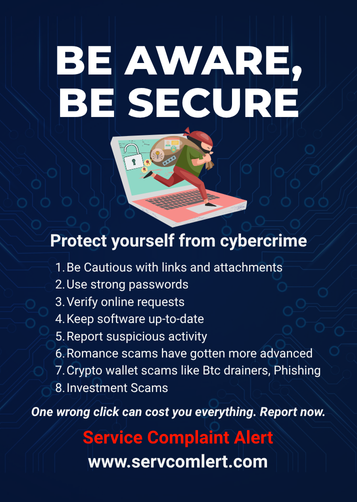The excitement of meeting someone new online can quickly sour when financial concerns emerge. For many, the promise of connection turns into a story of loss, as hidden red flags in online dating reveal themselves too late. From sudden money requests to evasive answers about financial details, these warning signs can be subtle but costly. Understanding these financial red flags is essential to protect both your heart and your wallet.
As digital romance becomes increasingly entwined with financial transactions—from sharing digital wallets to sending money abroad—being vigilant is more important than ever. In an era where romance scams evolve with technology, platforms like Voyallet, known for secure crypto asset management, offer tools that can help users manage digital finances safely. But recognizing the initial warning signs remains the first and most critical step.
Why Financial Red Flags in Online Dating Matter Now
The rise of online dating apps has made it easier than ever to meet people worldwide, but it also opens doors for scammers targeting vulnerable individuals. According to the FBI’s Internet Crime Complaint Center, romance scams led to losses of over $600 million in recent years, many of which began with financial red flags ignored or misunderstood by the victims.
Financial exploitation in online dating can take many forms—false job offers, fabricated emergencies, or elaborate stories designed to win trust and sympathy. It’s not just about losing money; these scams damage emotional well-being and trust in future relationships.
With cryptocurrency becoming a popular way to send money quickly and anonymously, scammers now exploit digital wallets and investment schemes. This makes the ability to spot financial warning signs early more critical than ever.
7 Key Financial Red Flags in Online Dating
- Sudden Requests for Money or Financial Help
A common red flag is an early or unexpected request for money. Whether it’s a vague “emergency,” help with travel costs, or assistance with a sudden financial burden, these requests should raise immediate caution. Genuine partners rarely ask for financial help so soon or without meeting in person.
- Avoidance or Inconsistency About Financial Details
If your online partner is evasive when you ask about their job, income, or financial situation, it could be a sign of deception. Inconsistencies in stories about employment or vague explanations about finances often indicate that something is amiss.
- Pressure to Use Untraceable Payment Methods
Requests to send money via wire transfers, gift cards, or cryptocurrency are classic scam techniques. These payment methods are hard to trace and recover, making them attractive for fraudsters. Platforms like Voyallet provide more secure ways to manage digital assets, but even then, caution is essential.
- Stories That Seem Too Perfect or Overly Dramatic
Be wary of narratives that appear overly dramatic, like sudden illness, death in the family, or urgent business problems. These tales are often crafted to invoke sympathy and prompt financial help before skepticism sets in.
- Refusal to Meet or Video Chat
While this is not strictly a financial red flag, avoidance of face-to-face or video communication often aligns with financial scams. Scammers use this tactic to avoid revealing their true identity and to maintain the illusion crafted through messages.
- Inconsistent Communication Patterns
Rapid shifts from intense attention to silence or vague excuses for delays may indicate manipulation. These patterns can be a tactic to emotionally destabilize the victim and create a sense of urgency around financial requests.
- Pressure to Keep Financial Conversations Private
If your partner insists that financial dealings or the relationship itself should remain secret, this is a major red flag. Transparency is essential in any relationship, and secrecy around money often hides wrongdoing.
The Human Side: Real Stories Behind the Red Flags
Take Sarah’s story: after a few weeks of chatting online, she was asked to help cover a “medical emergency” for her partner abroad. Despite feeling uneasy, the emotional connection clouded her judgment. The funds she sent disappeared, and the person vanished shortly after. Like many, Sarah was left grappling with financial loss and emotional betrayal.
Experts in relationship counselling emphasize the need for emotional as well as financial vigilance. “Romance scams prey on loneliness and trust,” says Dr. Elena Martinez, a financial therapist. “Recognizing the red flags early can save individuals from deeper harm.”
Practical Steps to Protect Yourself
- Verify Identity Early: Use video calls to confirm who you are talking to.
- Don’t Send Money Upfront: Never send money without thorough verification.
- Use Secure Financial Tools: Platforms like Voyallet offer secure wallet services that combine transparency with ease of use.
- Discuss Finances Openly: Healthy relationships include honest financial conversations.
- Report Suspicious Activity: Alert dating platforms or authorities, Service Complaint Alert if you suspect fraud.
- Educate Yourself Continuously: Stay updated on common scam techniques and warning signs.
- Trust Your Instincts: If something feels off, pause and reassess before proceeding.
Looking Forward: Building Safer Online Dating Experiences
As digital relationships continue to grow, the blend of technology and finance will only deepen. By staying informed and cautious, users can protect themselves against financial exploitation. Tools like Voyallet provide useful options for managing digital money securely, but awareness remains the strongest defense.
Remember, a genuine connection should never come with financial pressure or secrecy. By watching for these financial red flags, you safeguard not just your money but your trust and well-being in the digital dating world.


















